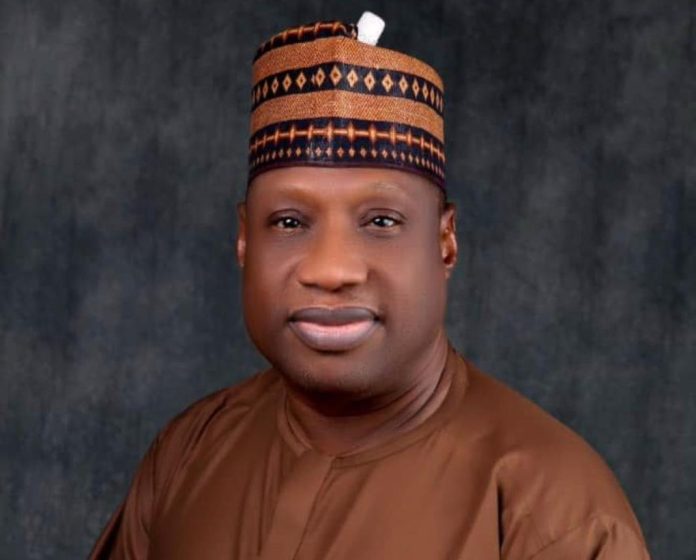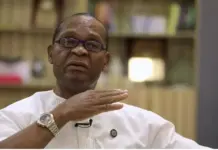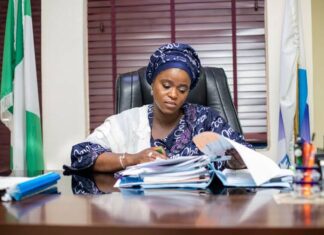In order to settle outstanding obligations to wholesale gas-producing businesses for gas delivery, which almost resulted in a nationwide blackout in December of last year, the federal government has put in place a feasible payment plan.
The Power This was revealed by Farouk Ahmed, the chief executive of the Nigerian Midstream and Downstream Petroleum Regulatory Authority, at the Petroleum Industry Stakeholders Forum’s first meeting, which took place in Abuja on Thursday.
Ahmed clarified that the solution, led by Olu Verheijen, Special Adviser to the President on Energy, had released gas amounts that had previously been constrained.
A huge dispute between wholesale gas producers and power production companies over unpaid legacy obligations nearly led to a statewide blackout last year, but the president’s last-minute intervention prevented it. Given that gas-fired power plants generate over 70% of Nigeria’s energy, this would have seriously affected the country’s power generation.
“The initiative to adopt a workable payment solution, along with other policies, has improved natural gas supply for both domestic and export markets, revitalized midstream and downstream infrastructure, and encouraged the use of domestically produced LPG,” Ahmed said in a statement that our correspondent was able to obtain.
More than $400 million has been invested in the construction of 86 new “daughter” stations and 65 “mother” stations as a result of these initiatives, he continued.
Read Also: Lawal Vows Better Welfare for Fallen Heroes’ Families in Zamfara
We value the outstanding leadership of the Honourable Ministers of State for Petroleum Resources (Oil and Gas) in meeting the administration’s energy goals,” Ahmed said.
In order to promote economic prosperity, these initiatives have improved energy security, improved natural gas supply for both domestic and export markets, revitalized midstream and downstream infrastructure, guaranteed crude oil supply to domestic refineries, and encouraged the domestication of LPG production.
“Through Mr. President’s Executive Orders, the Special Adviser to the President on Energy has also been instrumental in settling legacy debts, establishing a practical gas supply payment plan, and putting innovative policies into place to improve ease of doing business.”
He added that a lot of work has been done in promoting compressed natural gas as a fuel substitute.
Nigeria’s conversion capacity has increased by more than 2,500% in the last year thanks to the PCNGI (Presidential Compressed Natural Gas Initiative), which has been sponsored by the NMDPRA. Due to these conversions and fresh acquisitions, Nigeria now possesses between 30,000 and 50,000 gas-powered cars and trucks, and the number is rising every day.
86 new daughter stations and 65 new mother stations are being built with investments totaling more than $400 million. The number of refueling stations in Nigeria has increased from 20 to 56. The Nigeria Gas Vehicle Monitoring System, which is presently in its pilot phase and is anticipated to launch in 2025, and safety standards have also been developed as a consequence of cooperative efforts with PCNGI, NMDPRA, and SON.
Ahmed also emphasized the advantages of deregulating the petroleum products market at full pricing.
“A level playing field has been established by the reform, encouraging healthy competition and drawing in investment prospects. Value-added services and competitive pricing are now available to consumers. The nation celebrated the end of the year and the beginning of the next year without any gasoline shortages or supply interruptions for the first time in many years.
He pointed out that while other oil marketing organizations’ involvement has improved product availability, domestic refineries have made a substantial contribution to the country’s energy supply needs. Additionally, the naira’s appreciation, the emergence of a competitive market environment, and a variety of supply sources have stabilized the pump price of petroleum products across the country.
Ahmed came to the conclusion that by assisting in the prompt resolution of issues, the Petroleum Industry Stakeholders Forum would help avoid disagreements that may otherwise result in expensive litigation or alternative dispute resolution.
Join Television Nigerian Whatsapp Now
Join Television Nigerian Facebook Now
Join Television Nigerian Twitter Now
Join Television Nigerian YouTUbe Now





